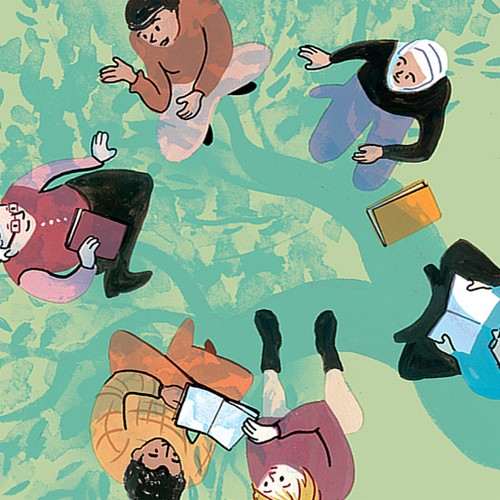“One Book” Toolkit
2024 TOOLKIT

PLAN YOUR EVENT
How to host a book discussion group Librarians and Archivists with Palestine launched One Book, Many Communities in 2015, and book discussions have been the center of our campaign each year.
Unfortunately, COVID-19 is still very much with us. We urge all of our volunteers to plan with COVID-19 safety in mind. Remote events are a good option for some, plus if you host a remote event, people can attend from anywhere! If hosting an in-person gathering, it helps to be mindful of ventilation, outdoor options, and use high-quality masks. Read more on COVID-aware events here.
Read on for tips to host your own virtual or in-person book discussion group and see our resource guide (PDF) for additional information and suggested further readings.
FOR VIRTUAL EVENTS
Choose a virtual platform. There are a lot of digital platforms out there to host meetings. Zoom is very popular, but you can also use Skype, Google Meet and Discord, among others. Be aware that there are some privacy issues with online conferencing. Try out the platform before your event and get accustomed to the interface.
Consider virtual privacy and safety. “Zoombombing” has become an unfortunate reality and events about Palestine have become targets. If you’re only hosting a small event for people you know, the risks are much lower, but it’s good to be aware. Read here for practical tips for protecting your event.
Consider your virtual platform to ensure you understand logistics. What is the maximum number of devices allowed in a meeting? Is there a time limit? Do you know how to manage the interface? Keep in mind that all participants should be able to contribute and may not know how to use your platform of choice.
FOR IN-PERSON EVENTS
Choose an accessible in-person location. You might consider a bookstore, public library, or even a park if weather permits.
PLAN YOUR EVENT
Pick a date in April or May 2024. April is National Poetry Month in the United States and Canada making it an especially good time to discuss a poetry collection! If these months prove impossible and you need to schedule your group at a different time, that’s okay, too.
Choose a facilitator/leader for the discussion. Find someone who’s excited to read and help generate conversation around the book.
Plan the format. Depending on the size and nature of your event, this could be an informal conversation or a structured discussion around particular questions.
Tell LAP about your event. This year, the One Book campaign has its own email address so reach us via onebookcampaign@gmail.com We will list it and link to it on our own site and on social media. We’d like to know where in the world you are and if you’re uniting people from your town, club, or other group.
Brainstorm how to incorporate participants. Do you already have an idea of who you want to invite? Do you want people to sign up in advance? Make sure you get correct contact information like email addresses so you can send meeting links or invites.
Consider your audience. Things You May Find Hidden in My Ear: Poems from Gaza includes content pertaining to war, death (including death of children), genocide, and occupation. Emotional responses to traumatic themes can vary and consider how engagement with the material in a safe and healthy way can vary person to person. Consider how the event can normalize making space for community care.
Get more ideas here:
- How to Hold a Literature Event or Poetry Reading (The Curator)
- 10 Tips for Hosting a Digital Book Club (Bustle)
- Reading in a time of crisis (or, 10 ways to run a virtual book club) (LinkedIn)
- Beyond the Book (UK site)
- One Book, One College: Common Reading Programs (Barbara Fister)
PROMOTE YOUR EVENT
If your event is open to the public, publicize it:
- Use our resources for promotional images, or make your own using the “One Book, Many Communities” logo.
- Create a Facebook group and/or event page. Email us the link so we can post a link on our main Facebook page.
- Post to social media using the hashtag #lap1book. If you tag us (Twitter @Librarians2Pal and Instagram @librarianswithpalestine), we will share!
Let participants know where they can obtain the book:
- Things You May Find Hidden In My Ear is available from many public and academic libraries. (Also many public libraries allow you to request to purchase the book or obtain it from another library via interlibrary loan.)
- Copies can be purchased from the publisher, City Lights, as well as Bookshop.org, Powell’s, Barnes & Noble (including eBook), and other online book retailers.
- Let us know if you have any questions about acquiring the book.
A NOTE ABOUT LANGUAGE ACCESS
Things You May Find Hidden in My Ear: Poems from Gaza was originally written in English. At present, this book is only available in English. We are soliciting translations of the title poem “Things You May Find Hidden In My Ear.” Read some of the translations gathered thus far here. If you’d like to submit a translation of the poem, reach out to us!
HOLD YOUR EVENT
Document it. Take a photo of yourself with the book, a screenshot of the online meeting, a picture of someone reading a poem, or photo of the gathering. Make sure you have permission before photographing participants! Record any presentations. Live tweet the discussion! Remember to use the hashtag #lap1book. Let us know if you and your participants agree to share publicly.
Share tips for leading a great book discussion with your facilitator:
(Several of these are adapted from guides from BookBrowse and LitLovers. For more guidance on helpful ground rules, see Antiracist Forum’s Safer Space guidelines.)
- If possible, communicate with participants in advance about your hopes, expectations, and goals for the group. What would you and they like to get out of the experience? This could help you structure your meetings and build in time for breaks, media viewing, etc.
- If you have time, consider collectively brainstorming questions about the book before the first meeting. This will give all participants a chance to help shape the discussion.
- Pick a poem that strikes you as interesting, moving, and/or thought-provoking. Read it aloud to the group. Discuss.
- You can even host your event in a poetry reading format. It doesn’t have to be formal. Identify in advance key poems that would be good to read aloud or let participants pick their favorite poems to read.
- Talk about your experiences of reading the book. Explore how the book made you feel, and the emotions, themes, and questions it brought up.
- Talk about any preconceptions you had before reading the book that changed after you read it. How did this book transform your attitudes and perceptions? What did you learn from it that you didn’t know before?
- Use secondary sources, such as articles, film, or images. See our resource guide (PDF) for ideas to place the novel in new contexts.
- If you could ask the author a question about the book, what would it be?
Ask one or more of these questions that LAP designed specifically about Things You May Find Hidden In My Ear:
- Sounds and silences appear throughout the poetry collection. What do the sounds, silences, and their associated imagery and descriptions tell us about life under occupation in Gaza? What are the sounds and silences of your life?
- In Ammiel Alcalay’s interview with Mosab Abu Toha, they discuss what poetry does for Abu Toha’s spirit, describing poetry as a “returning device” to “some sense of common humanity” (page 109). Abu Toha shares that poetry is more about feeling than form (page 106). What do you think is the role of poetry in our world? How does reading this poetry collection feel in your spirit?
- How is death portrayed across these poems? How are these portrayals distinct to Gaza and/or transcendent beyond Gaza?
- Abu Toha writes about the destruction of, reclaiming of, and longing for memory – from cultural institutions like theaters and universities to familial histories and lineages. As this One Book campaign launches, we are witnessing the genocide of Gaza in real time. What does reading this book compel you to do? How does it feel to read it where you are?
- Abu Toha writes of the joys and beauty while still living under occupation. What are some joys you’ve had within struggle? How much is too much that would/has compelled you to leave your homelands?
Share additional resources with participants. You can use our resource guide (PDF) for Things You May Find Hidden In My Ear for additional information and suggested further readings.
